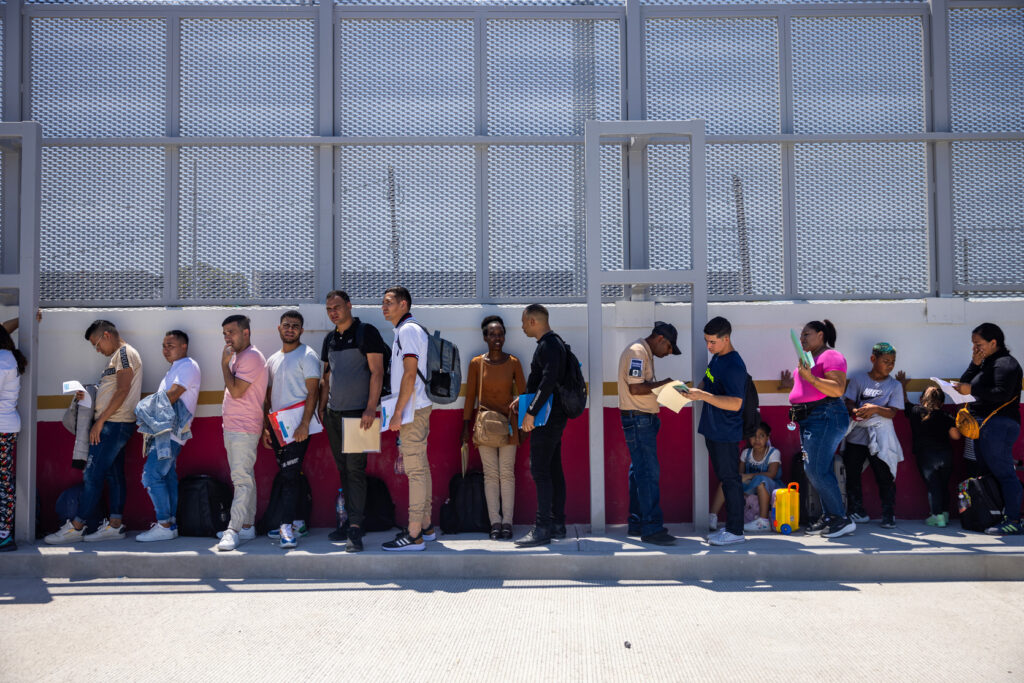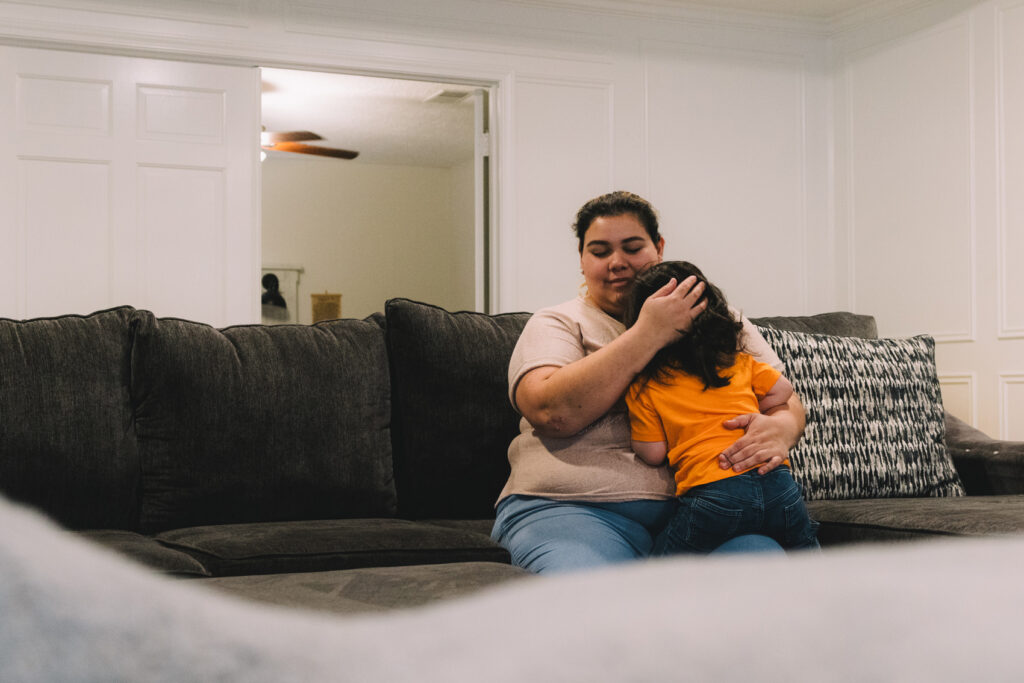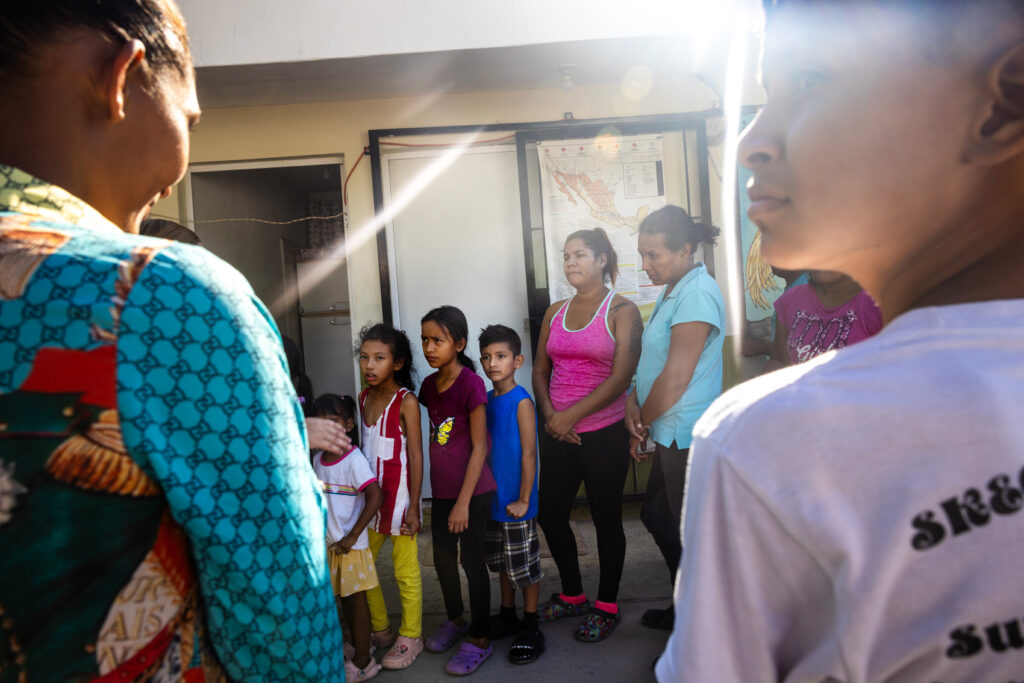The data reveals how Texas has become the operational center of the Trump administration’s nationwide deportation strategy, leveraging state-federal cooperation to expand detentions — even of immigrants without criminal histories.…
In his first days in office, President Donald Trump signed a whirlwind of executive orders and immigration policy changes, many focused on limiting legal immigration and enacting stricter border security. The initiatives signal the administration’s intent to carry out its campaign promises of mass deportations, and provide the first glimpse of how it would do it.
With 26 percent of Harris County residents being foreign-born, many of these changes will touch the lives of Houstonians and their families. These are some of the most important policy changes for immigrant Houstonians.
Asylum and border security
Trump restricted asylum access at the border by terminating the government app known as CBP One on Monday, throwing many Houston-bound migrants into limbo. Former President Joe Biden already tightened asylum access through a June 2024 policy barring most people from seeking asylum between ports of entry. The CBP One app maintained some access to asylum until it was terminated Monday.
The closure of the app was immediately challenged in court by the American Civil Liberties Union, which requested an immediate meeting with the judge and urged courts to act quickly to restore asylum access.
Ending CBP One was one part of a broader strategy to limit who can enter the U.S., by sending more personnel to the border, ramping up detention and ending other legal avenues to enter.
The decision could have the opposite effect and lead to more border crossings, lawyers and advocates said Tuesday.

People wait in line to be processed and allowed into the United States of America, Tuesday, Aug. 20, 2024, in Houston. (Antranik Tavitian / Houston Landing)
“That is not going to be an effective way to try to manage migration at the border because what happens is it will drive more people to enter irregularly in between the ports of entry,” Gregory Chen, Senior Director of Government Relations for the American Immigration Lawyers Association (AILA), said in a Tuesday press call.
“What we not only see in terms of lack of order and increased chaos at the border is that asylum seekers will be stuck in very difficult humanitarian situations,” Chen said.
Birthright citizenship
Trump issued an executive order to end birthright citizenship for children who do not have at least one parent who is a citizen or legal permanent resident. This would have wide-ranging implications and exclude children of people with statuses such as Deferred Action for Childhood Arrivals or Temporary Protected Status. It would go into effect in 30 days and would not apply to cases retroactively.
Limiting birthright citizenship contradicts the 14th amendment, which states that “all persons born or naturalized in the United States, and subject to the jurisdiction thereof, are citizens of the United States and of the State wherein they reside.”
As a result, the ACLU sued.
“We will not let this attack on newborns and future generations of Americans go unchallenged. The Trump administration’s overreach is so egregious that we are confident we will ultimately prevail,” said Anthony D. Romero, executive director of the American Civil Liberties Union, said in a press release.

Maria Pineda comforts her son Elijah Pineda, 3, as he cries in her arms on Monday, March 4, 2024, in Houston. (Joseph Bui for Houston Landing)
Refugees
Trump suspended refugee resettlement indefinitely beginning Jan. 27 in an executive order released Monday night. After 90 days, the Department of Homeland Security Secretary and Secretary of State must send a report to the president recommending whether resuming accepting refugees is in the country’s best interest.
The U.S. once had the most robust refugee resettlement program in the world, but Trump attacked the program in his first term. Biden then increased the refugee cap to 125,000 after a record low of 18,000 during the last year of Trump’s first presidency.
Refugees, who must be fleeing war, persecution or natural disaster to be eligible, are heavily vetted by the U.S. government before arriving. Houston is one of the major cities for refugee resettlement, settling thousands of refugees from Democratic Republic of Congo, Syria, Afghanistan and more in recent years.
“We are appalled by the callousness that this administration is taking toward victims of violence and persecution,” said president of refugee resettlement agency HIAS Mark Hetfield in a statement. “Refugee resettlement is a safe and legal pathway, it is a longstanding, bipartisan tradition, it strengthens our national security, and it brings enormous economic and cultural benefits to our communities.”
Immigration enforcement
On Tuesday, DHS issued a directive rescinding guidelines for Immigration and Customs Enforcement to limit its enforcement in churches, schools and hospitals. These areas have previously been off-limits to ICE agents so that immigrants can seek healthcare, worship, and go to school without fear of deportation.
“Rescinding these protections will disrupt families and communities, deter individuals from accessing essential services such as education and health care, and infringe upon their right to practice their faith freely,” Karen Sullivan, director of advocacy at faith-based immigrant legal aid organization CLINIC, said in a statement.
DHS also issued a notice expanding the practice of quickly deporting recently arrived immigrants known as expedited removal. Previously, this could only be applied within 100 miles of the border to immigrants in the country for less than two weeks. The new rule could be applied anywhere in the country to immigrants who cannot prove they have been in the country for two years. A previous attempt to expand expedited removal during Trump’s first term was challenged in court.
Halting legal migration
While Trump stopped short of issuing a travel ban as he did in his first term, he issued an executive order requiring within 60 days that the head of the DHS and other cabinet officials to identify countries with poor vetting to merit suspension of all entries. Within 30 days, the Secretary of State, Attorney General, DHS Secretary and Director of National Intelligence will also have to evaluate all visa programs and increase vetting process.

Woman and children line up to receive orange juice and a sandwich from a local church group at the Casa Del Migrante Frontera Digna, Tuesday, Aug. 20, 2024, in Piedras Negras, Coahuila, Mexico. (Antranik Tavitian / Houston Landing)
In another executive order titled “Securing our Border,” Trump instructed DHS to terminate legal migration programs, including a program that vetted half a million people from Cuba, Haiti, Nicaragua and Venezuela for entry into the U.S. under the president’s parole authority.
Foreign terrorist organizations
Trump designated Mexican cartels, Venezuelan gang Tren de Aragua and MS-13 as foreign terrorist organizations. This will increase the funding and resources available to the government to fight these groups. However, it also raises questions about the immigration implications if someone pays a ransom or extortion payment to these groups under threats. As the Houston Landing previously reported, kidnappings for ransom are rampant at the U.S. Mexico border.
Gov. Greg Abbott previously singled out Tren de Aragua as a growing threat to Texas, but experts said the known cases in Houston were low. At a time when the Venezuelan population is among the fastest growing immigrant populations in the U.S. and Houston, experts previously cautioned that the emphasis on the gang could be used to demonize migrant communities and justify mass deportations.
Mass deportations
Combined, these executive orders represent the first stages of a plan to carry out mass deportations.
“It is a major infrastructure initiative to focus heavily on immigration enforcement across the board,” Doris Meissner, senior fellow and director of the U.S. Immigration Policy Program at the Migration Policy Institute, said in a press call Tuesday.
“It really recategorizes immigration as a national security threat and puts into place, both at the border with a national security lens, as well as in the interior with a threat to public safety and the well-being of American communities, the wherewithal to have much more heightened enforcement.”
